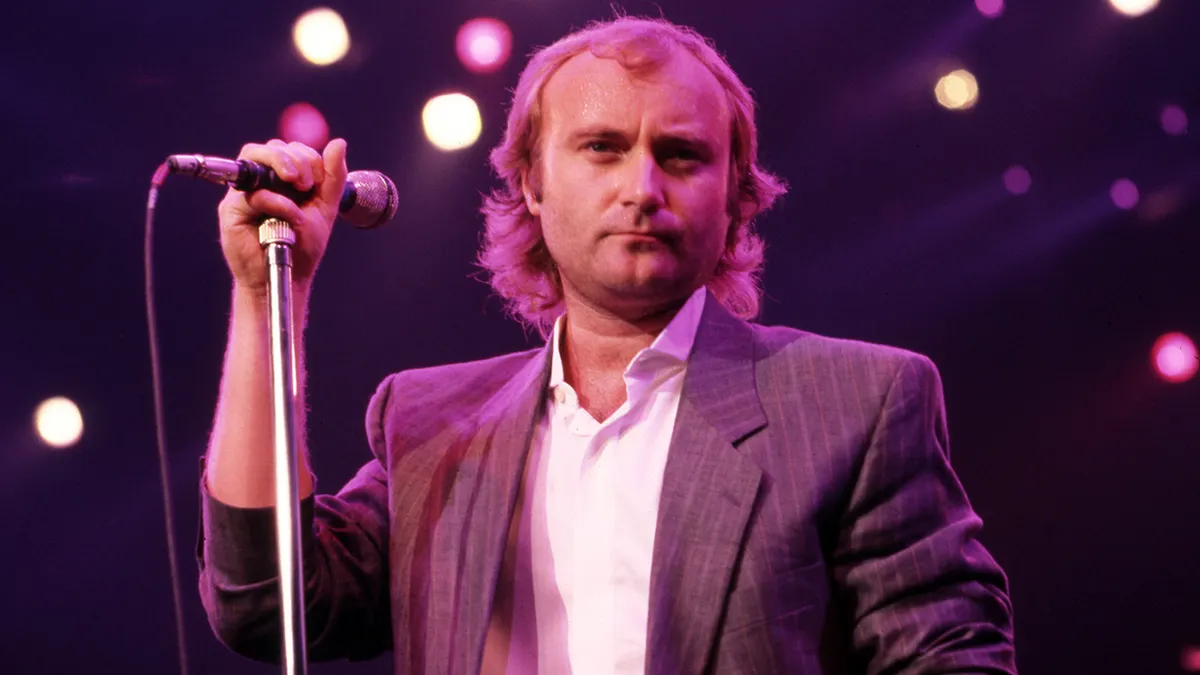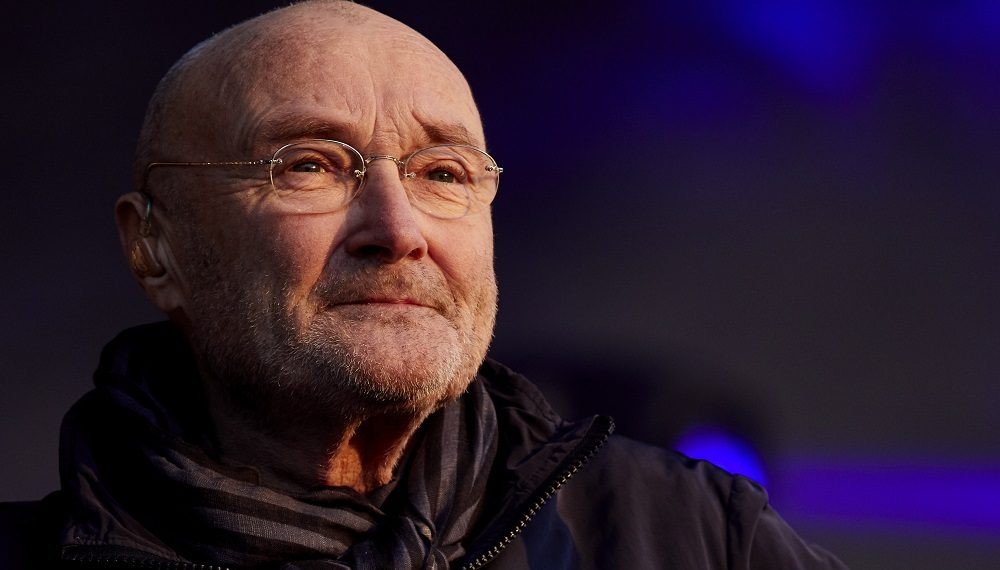Phil Collins, the renowned English musician, singer-songwriter, multi-instrumentalist, actor, and writer, boasts a remarkable net worth of $350 million. His career accomplishments not only make him one of the wealthiest drummers in the world but also position him as one of the richest Oscar winners and lead singers of all time. Collins’ extensive career includes numerous accolades and records that solidify his position as an iconic figure in the music industry.
Sales and Accolades
Phil Collins’ success is marked by his staggering sales. He has sold over 100 million albums globally, both as a solo artist and as a member of the legendary band Genesis. This achievement places him in an exclusive category alongside other music greats such as Michael Jackson and Paul McCartney. These three artists are the only ones to sell over 100 million albums both as solo acts and as part of a group.
Throughout his career, Collins has earned a plethora of prestigious awards. These include seven Grammy Awards, two Golden Globe Awards, and an Academy Award for his exceptional contributions to the music world. These accolades reflect his lasting impact and recognition within the entertainment industry.

Touring Earnings
Collins’ earnings from touring are equally impressive. In a touring year, he can earn as much as $50 million. For instance, his “Not Dead Yet Tour” grossed $90 million, leading to a personal earning of $45 million. His successful tours continue to demonstrate his enduring popularity and massive fanbase worldwide.
In a major business move, Phil Collins and his Genesis bandmates, Mike Rutherford and Tony Banks, made headlines in September 2022 by selling their music catalog rights to Concord Music Group Inc. for an astounding $300 million. This significant sale is a testament to the value of their musical legacy, which continues to generate income and influence across generations.
Early Life and Musical Beginnings
Phil Collins was born on January 30, 1951, in Chiswick, Middlesex, England, to Greville Philip Austin Collins and Winifred June Collins. He grew up with two siblings, and it was clear from a young age that music would play a significant role in his life. At just five years old, Collins received a toy drum set, which sparked his love for music. As he honed his skills, his parents upgraded his drum sets, fostering his passion for drumming.
The Beatles, particularly drummer Ringo Starr, heavily influenced Collins during his formative years. This early inspiration helped shape his musical identity and played a pivotal role in his eventual success.
Genesis: The Start of a Legendary Career
Collins’s professional music career began in 1970 when he joined the progressive rock band Genesis as a drummer. By that time, Genesis had already released two albums, but Collins’ contribution would soon glorify the band to new heights. In addition to his drumming duties, Collins also served as a backing vocalist for the band’s lead singer, Peter Gabriel.

Despite being in the background initially, Collins did get the opportunity to sing lead on two songs—”For Absent Friends” from Genesis’ 1971 album “Nursery Cryme” and “More Fool Me” from the 1973 album “Selling England by the Pound.” His unique vocal abilities soon became apparent.
When Peter Gabriel left Genesis, Collins stepped into the role of lead vocalist. His voice, which was often compared to Gabriel’s, propelled the band to new commercial success. Collins led Genesis through the release of several iconic albums, including A Trick of the Tail (1976), …And Then There Were Three… (1978), Duke (1980), Abacab (1981), Genesis (1983), Invisible Touch (1986), and We Can’t Dance (1991).
Phil Collins’ Solo Career
In March 1996, Phil Collins made the bold decision to leave Genesis and focus on his solo career. Prior to this, he had been releasing solo music alongside his work with Genesis, which had already gained him recognition as a solo artist.
His solo discography includes the albums Face Value (1981), Hello, I Must Be Going! (1982), No Jacket Required (1985), …But Seriously (1989), and Both Sides (1993). Among these, No Jacket Required remains one of his most successful albums, having sold over 20 million copies worldwide and cementing his place as a pop icon.
Despite his success, Collins faced some challenges after leaving Genesis. In 1996, he formed the Phil Collins Big Band and toured with them, performing a mix of jazz standards and renditions of Genesis and Collins’ own songs. Later that year, Collins released Dance into the Light, which, despite chart success in the UK, was met with critical disappointment and did not perform as well commercially as his earlier works.
Disney Collaborations and the “Tarzan” Era
Phil Collins’ career took an unexpected yet successful turn when he was recruited by Disney to write and perform songs for their animated feature Tarzan (1999). His involvement in the film included singing his compositions in multiple languages, such as English, French, Italian, German, and Spanish, for the various dubbed versions of the film. The result was widely praised, and the track “You’ll Be in My Heart” became a massive hit.

The song spent 19 weeks at No. 1 on the Billboard Adult Contemporary chart, a record-breaking feat. For his work on Tarzan, Collins won both an Academy Award and a Golden Globe Award for Best Original Song in 2000, further solidifying his place in music history.
Later Years and New Ventures
In 2002, Collins released the album Testify, which received some of the worst reviews of his career at the time. However, he rebounded in 2003 by contributing to the soundtrack of Disney’s Brother Bear (2003), both as a singer and a composer. This was followed by the release of Going Back in 2010, which was another notable addition to his catalog.
In 2015, Collins struck a deal with Warner Music Group to remaster all of his solo albums, ensuring that his music continued to resonate with fans old and new. The following year, he published his autobiography, Not Dead Yet, providing fans with an in-depth look into his life and career.
Real Estate and Property Deals
Phil Collins has also made significant real estate investments over the years. In 2015, he purchased a sprawling 11,000-square-foot waterfront mansion in Miami for $33 million. However, by December 2020, he sold the property for $39 million to private equity billionaire Orlando Bravo.
In an interesting turn of events, Collins faced a situation where his ex-wife, Orianne Cevey, reportedly refused to leave the mansion unless she was paid $20 million, despite already receiving a $45 million settlement. While the exact resolution of this matter remains unclear, it highlights the complexities of Collins’ personal life.
Additionally, Collins has long maintained property in his native England, further adding to his real estate portfolio. These assets, along with his musical legacy, contribute to his extraordinary wealth.




